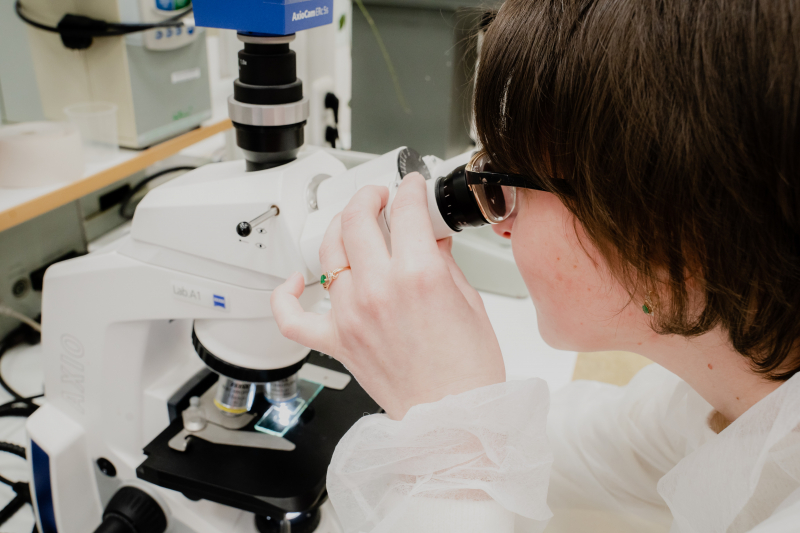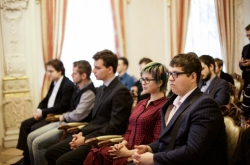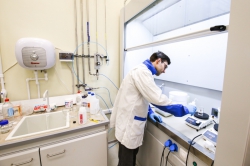The grant contest, conducted by the Ministry of Education and Science, is open to PhD researchers under the age of 35 and doctoral researchers under 40. During the selection process, experts evaluate participants’ achievements over the past three years: the number of publications in high-ranking journals indexed by Web of Science and Scopus, reports and presentations at conferences, IPs, teaching experience, and public recognition (awards).
When assessing the candidates’ research, the experts consider its relevance and novelty, the significance of the expected results, and their contribution to the nation’s scientific and technological development.
Physics
A senior research associate at the Faculty of Physics, Kseniia Baryshnikova has won a grant for her project on controlling the emission of single emitters in nanoresonator clusters.
“Dielectric nanophotonics is a new field of science that studies how optical signals are transmitted, processed, and converted when light interacts with dielectric nanostructures. Processing signals at the speed of light and with no resistance losses is advantageous to processing them with electric currents, which is the method commonly used today. Lately, the subject of converting single photons has been attracting more attention in connection with quantum computing. The properties of active dielectric structures depend on the alignment and positioning of quantum emitters in them. This grant will be used to study and optimize such structures,” comments the scientist.
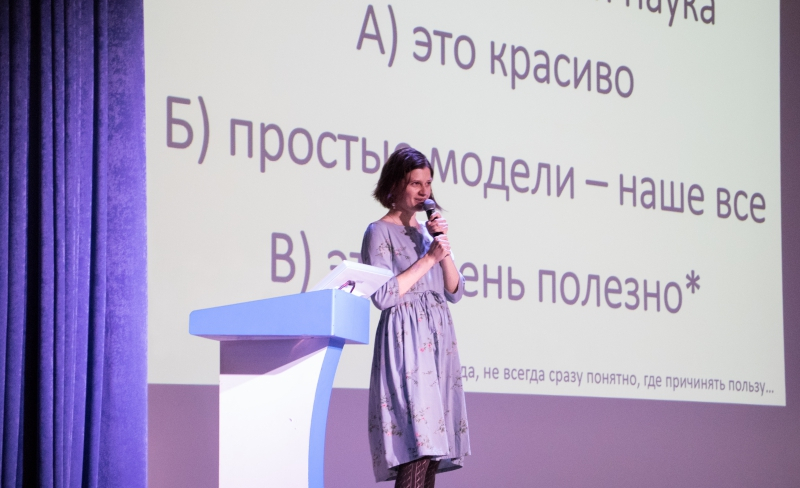
Kseniia Baryshnikova. Credit: ITMO.NEWS
Another winner in this track is Anton Kovalev, an associate professor at the Institute of Advanced Data Transfer Systems – he will receive financing for his research on spectrum-dependent photonic reservoir computing.
“My research is in the relatively new subfield of neuromorphic (or neuro-inspired) computing – reservoir computing. The essence of this approach is the implementation of complex recurrent neural networks with a fading memory based on a single nonlinear node with delayed feedback. We will study how dispersion and filtering affect the properties and efficiency of reservoir computing systems. In the future, this will allow the emergence of reliable and robust optical devices for big data processing, characterized by lower energy consumption and higher processing speed in comparison with the existing electronic counterparts – all thanks to the elimination of the intermediate stage of analog-to-digital conversion of data,” comments Anton Kovalev.
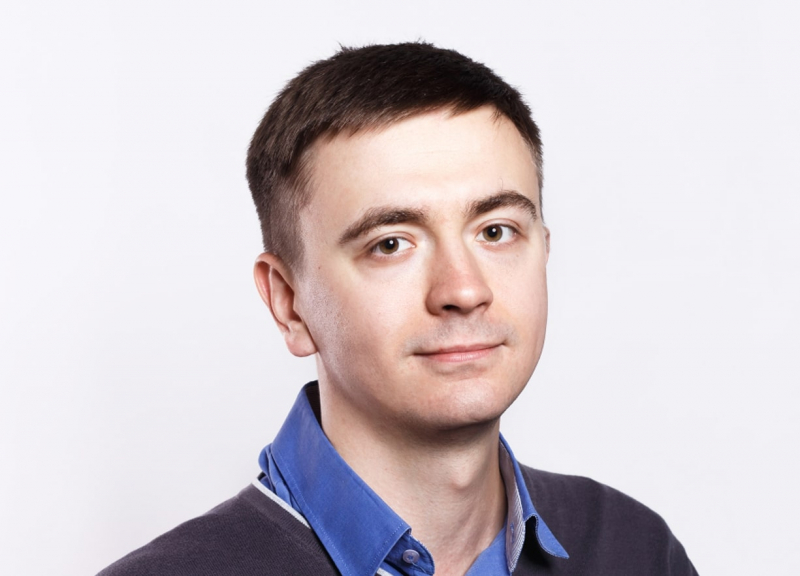
Anton Kovalev. Credit: ITMO.NEWS
Chemistry
Two of ITMO young scientists became winners in this track. The project Laser-induced metal deposition from deep eutectic solutions by Lev Logunov, a junior researcher at the Faculty of Physics, will focus on applying these methods to create new technological solutions for the prototyping of LEDs and other optoelectronic devices. And Aleksandr Podshivalov, the head of the laboratory of the Center of Chemical Engineering, will use his grant to develop the composition, structure, and production method of a bioresorbable suturing material based on nanofibers made from a mixture of chitosan and gelatin for use in surgery of internal hollow organs.
“It is very hard to treat sutures in resection surgeries of hollow organs, such as the stomach or lungs. The use of traditional surgical sutures results in leakage, hence this method is quite ineffective. Our project’s idea is to create a new material – an unwowen nanofiber mat with nanofibers composed of chitosan and gelatin biopolymers that are 50-60 nanometers in diameter. Our research will make it possible to create such a material with a controlled resilience to resorption in model liquids that imitate the gastric and intestinal environments, as well as bioresorption under the effects of enzymes,” explains the researcher.
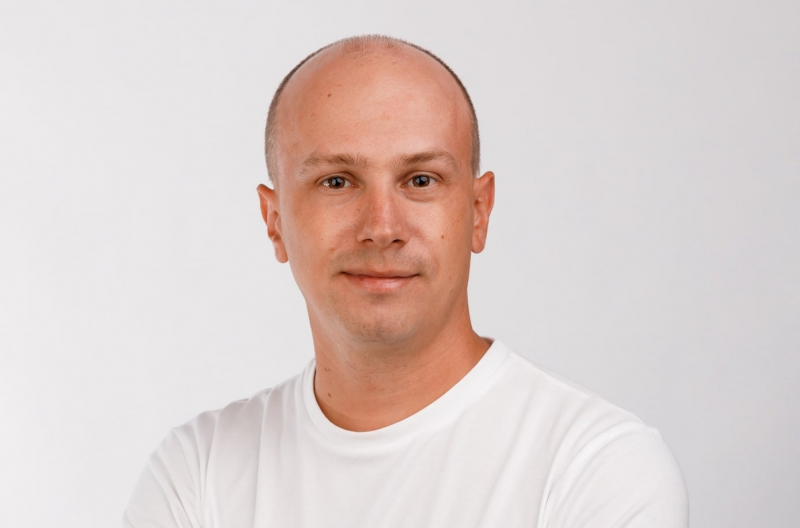
Aleksandr Podshivalov. Credit: ITMO.NEWS
Technical sciences
Olga Pirozhnikova, an associate professor at the Faculty of Secure Information Technologies, won a grant for the development of theoretical and experimental methods for the protection of transportation infrastructure facilities from technogenic and terrorist threats.
Ivan Borisov, an associate professor at the Faculty of Control Systems and Robotics, will focus his grant-winning research on the development of interactive design methods for single-drive robotic systems with morphological computing of movement control laws.
“For me, winning this contest has become yet another confirmation of the relevance of my chosen research field. After defending a PhD thesis on the synthesis of mechanisms for adaptive anthropomorphic robotic grippers and energy-efficient jumping robots, I continued to work on this topic as a team. This year, we published two research works at the IROS 2021 international conference, and developed a gripper for the iCub robot in collaboration with one of Sberbank’s laboratories,” comments Ivan Borisov.
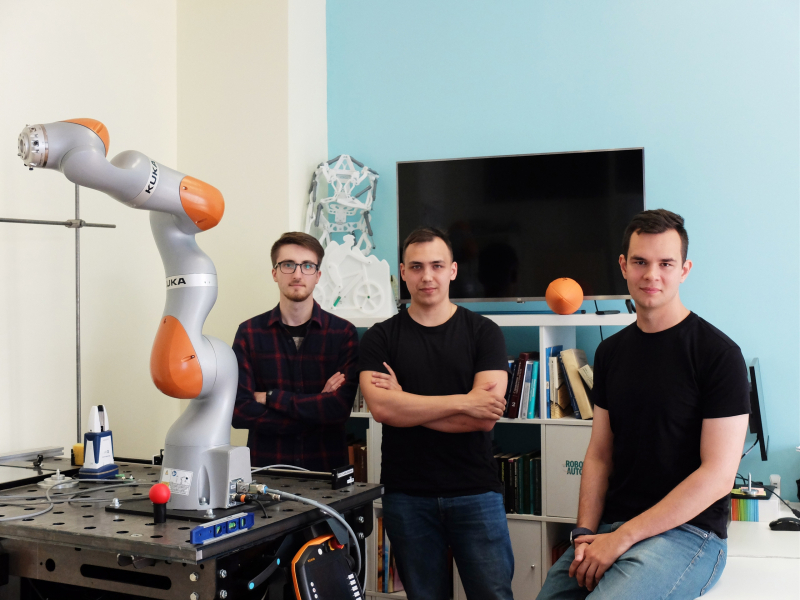
Ivan Borisov (on the right) and the team working on a galloping robot. Credit: ITMO.NEWS
Sergei Muraveinikov, an associate professor at the Faculty of Energy and Ecotechnology, received a grant for the financing of his research Integration of engineering systems of a building and fourth-generation heat supply networks based on local energy hubs.
Professor Anton Pyrkin won the competition for researchers with a doctoral degree in the Technical Sciences track. Over the past three years, he has created a new generation of generic methods of mathematical engineering that made it possible to effectively solve tasks associated with controlling various mechatronic and robotic systems. These approaches can contribute to the development of AI systems capable of managing physical objects and processes.
Anton Pyrkin. Credit: ITMO.NEWS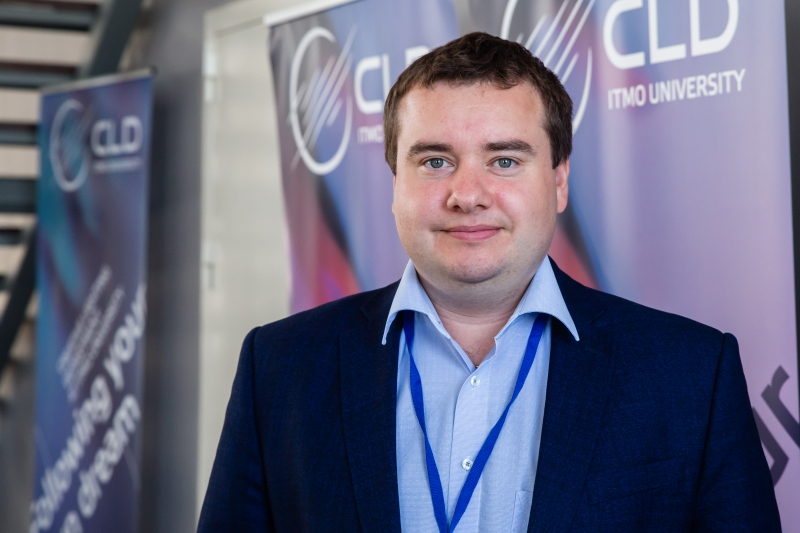
His research project is aimed at the development of AI methods and their application in control systems and robotics.
“It’s great to be among the winners of the prestigious Presidential Grant competition. This is a victory not only for me, but also for the young scientists and PhD students who actively participate in my project. A single scientist is capable of generating new approaches and ideas, but it’s very hard to attain real and convincing practical results without a team,” shares the professor.
This year, the presidential grants will amount to 600 thousand rubles for PhD researchers and one million rubles for doctoral researchers.
